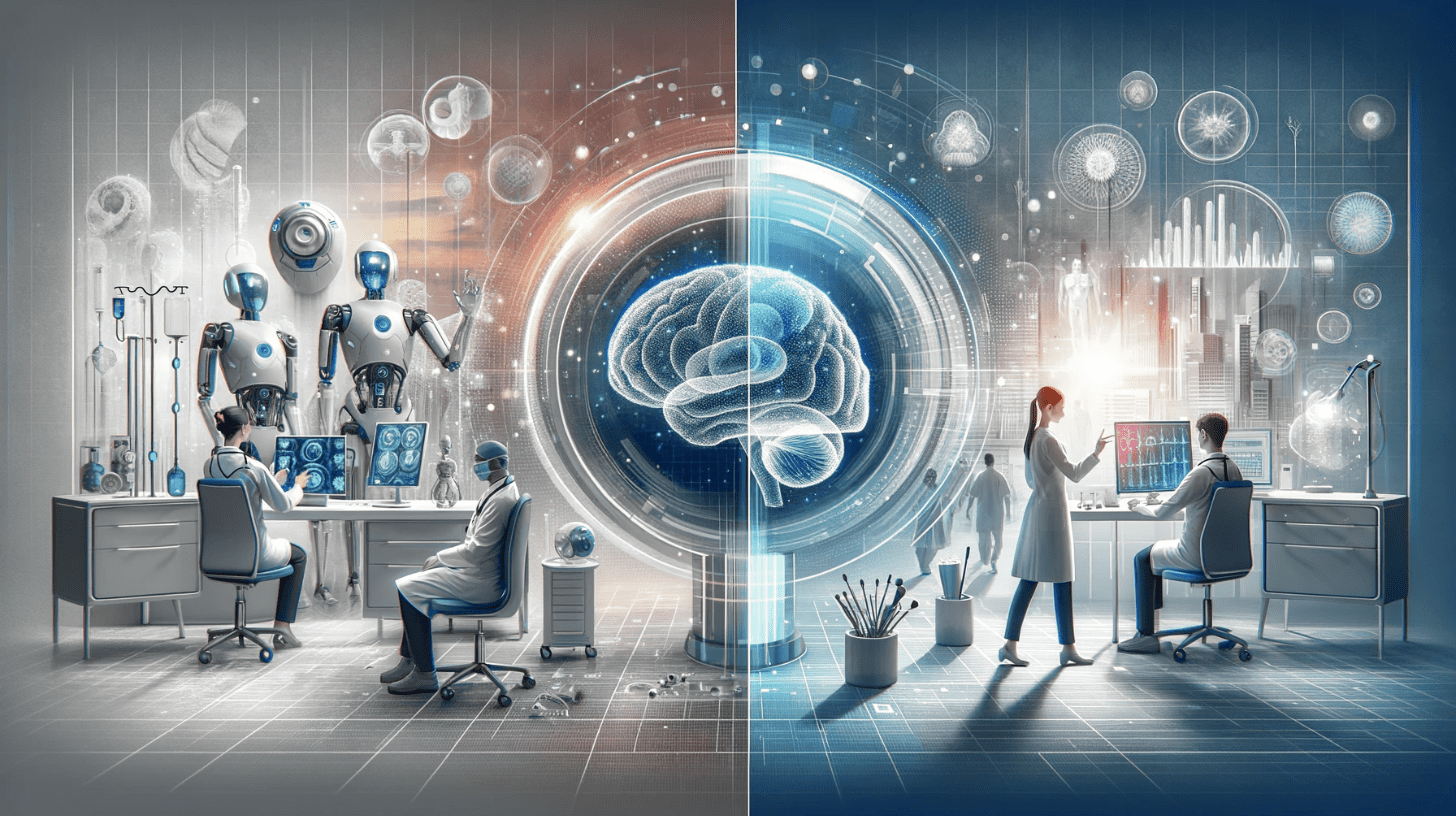
What’s Actually Happening with AI and Healthcare?
There’s something pretty wild going on in the world of healthcare, and it’s not happening in some sci-fi movie. More and more people are skipping regular doctor visits and choosing something totally different—AI. Yeah, artificial intelligence. It’s not replacing doctors completely, but it’s helping people figure out what’s going on with their health faster, easier, and sometimes even better than a real-life doctor.
The idea of talking to a computer instead of a person about being sick might sound strange at first. But here’s the thing—it’s already happening. People are logging onto websites or apps, answering a few questions, and getting advice, diagnoses, or even prescriptions without ever leaving their house.
In fact, a quick AI doctor visit can be a super helpful option for simple health problems. Whether it’s a sore throat, weird rash, or questions about medicine, AI tools are trained to handle a lot of the common stuff doctors see every day. And for people who don’t want to wait around in a clinic, this is a big deal.
Why Are People Choosing AI Over Real Doctors?
There are a few major reasons this is catching on so fast. First, it saves time. No one enjoys sitting in a waiting room for hours just to spend five minutes with a doctor. With AI, it can take just a few minutes to get help. People can check symptoms on their phone in bed, during a lunch break, or even while traveling.
Second, it’s easier to access. Some areas don’t have clinics nearby, or they have long waits for appointments. Not everyone can take time off work or school just to see a doctor. But almost everyone has a phone or a computer. AI fills that gap by making healthcare more reachable, no matter where someone is.
It’s also super helpful for people who feel nervous or embarrassed talking to doctors about certain things. Whether it’s a personal issue or something they don’t want to explain face-to-face, AI gives them a private and judgment-free way to get help. No awkward conversations, just facts and solutions.
How Does It Actually Work?
Here’s how a basic AI doctor visit usually goes: someone opens an app or website, types in their symptoms, and answers some questions. The AI takes all that info and uses a huge amount of medical data to figure out what’s going on. Then it gives advice on what to do next—maybe rest, take over-the-counter meds, or see a real doctor if it seems serious.
Some AI systems even connect to real doctors afterward. That means the AI handles the easy part, like figuring out what the issue might be, and then a real doctor steps in if needed. It’s kind of like using GPS before driving—you still do the trip, but it helps you get there faster and smarter.
Is It Safe?
This is one of the biggest questions people have, and it totally makes sense. After all, this is about people’s health. The truth is, the best AI tools are made with help from real doctors and trained on tons of actual medical cases. They’re designed to be super careful and accurate.
That said, they’re not perfect. Just like regular doctors, AI can miss things or not know everything. But for basic health issues, they’re proving to be pretty solid. Plus, they always tell people to get checked out in person if something seems off or risky.
It’s also important to know that these systems don’t just make random guesses. They’re built to follow the same kinds of rules doctors use—asking the right questions, looking for signs, and matching symptoms with possible causes.
Where AI Really Helps Most
AI doctor visits are especially good for certain types of problems. Think sore throats, mild fevers, skin issues, or basic stomach problems. These are the things doctors see all the time and can usually be handled with basic advice.
They’re also great for checking if someone even needs to go to a doctor. A lot of people aren’t sure if they should be worried about their symptoms, so they wait too long or rush to urgent care when it’s not necessary. AI helps people make smarter choices earlier.
Mental health is another area where AI tools are starting to help. Some apps offer chatbots that ask about stress, sleep, or mood. While they’re not the same as talking to a therapist, they can give support and suggest what to do next, which makes a big difference for people feeling alone.
What About Privacy?
Privacy is a big deal, especially when it comes to health. Most good AI health tools are built to keep everything private and safe. They don’t share information with other people or companies, and they follow strict rules to protect data. Still, it’s smart to check any app or website before using it, just to make sure it’s trustworthy.
Also, because people type everything in themselves, they’re more in control of what they share. That makes a lot of users feel more comfortable, since they decide how much to explain or when to stop.
Will AI Replace Doctors?
No, and that’s not the goal either. Real doctors are still super important, especially for things that are serious or complicated. Surgery, long-term conditions, and emergencies definitely need human care.
But AI isn’t trying to do everything. It’s more about helping with the everyday stuff, the common problems that don’t always need a full doctor’s appointment. That way, doctors can spend more time on the cases that really need them.
Some doctors even like AI tools because they help speed things up. If AI takes care of the simple questions, doctors can focus on the bigger picture. It’s not a competition—it’s teamwork.
What This Means for the Future
Things are changing fast. As more people try AI doctor visits and see how helpful they can be, it’s probably going to become a regular part of healthcare. Kids growing up today might not even think twice about checking their symptoms with AI before going to a clinic.
It’s also going to help make healthcare fairer. Not everyone has the same access to doctors, but AI can make things more equal. With the right tools, someone in a small town can get answers just as fast as someone in a big city.
And the tech is only getting smarter. New updates, better data, and stronger connections between AI and real doctors mean the help people get will keep getting better.
The Main Things to Remember
AI doctor visits are getting more popular because they’re fast, easy, and make healthcare more available. People don’t have to wait forever to see a doctor or leave their house when they’re sick. While AI won’t replace real doctors, it does make a solid partner in helping people feel better.
What matters most is using the right tools, being smart about health, and knowing when to ask for more help if things don’t improve. Whether it’s checking symptoms on a screen or sitting in an exam room, the goal is always the same: helping people stay healthy.
Have thoughts about AI in healthcare? Start the conversation and see what others think.


